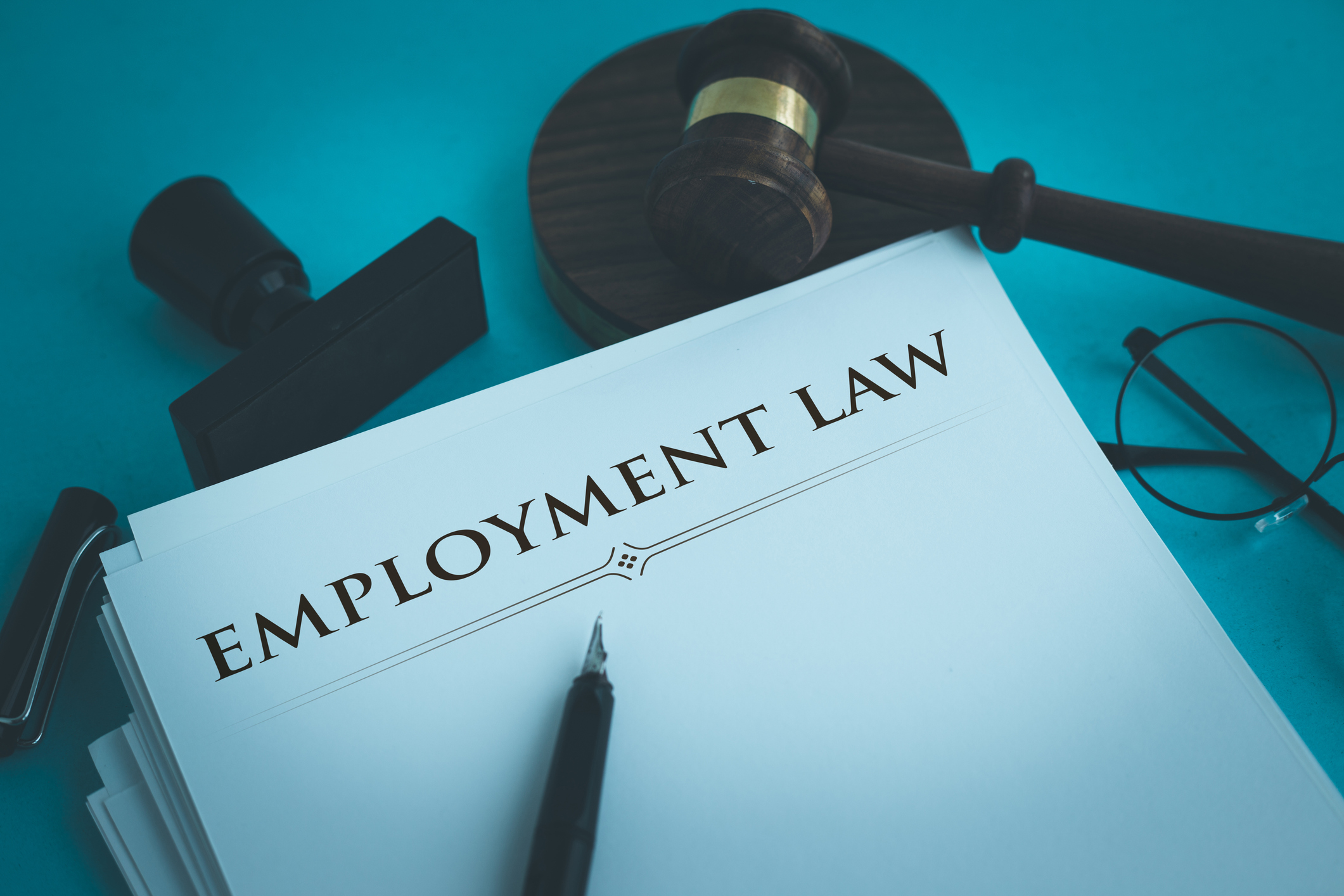Employment laws tend to be a very complex subject. There are both State and Federal employment laws that apply to workplaces in California, and the rules may apply differently based on the situation. As such, it can be hard for the average employee to know what their rights are and many fall victim to employment law myths that are incredibly pervasive.
Believing in these myths can prevent a person from filing a complaint when they have been treated illegally — or may cause a person to waste time and energy pursing a complaint that has no legal basis.
Below, we break down some of the more common employment law myths to separate fact from fiction. If you want to know more or are curious about whether you may have a California employment law claim, reach out to our law firm today.
Myth #1: Employers Need A “Reason” To Fire An Employee
California, like most states, is an “at will” employment state. This means that an employer can terminate most employees for any reason, or no reason at all, as long as it is not illegal (i.e. doesn’t violate any California law such as the Fair Employment and Housing Act (“FEHA”) or the California Labor Code, etc.).
However, if a person has an employment contract, is a member of a union, or works for a city, county, or state government, then the employer may only be able to fire that employee for a specific reason, or using certain procedures that have been agreed-to or put in place. The contract or other document that governs the employer-employee relationship (sometimes a “Collective Bargaining Agreement”) will specify how and why an employee can be fired.
However, if an employer were to fire an employee on the basis of their race, sex, national origin, religion, or membership in another protected class, then the employee may have a valid legal claim as this would violate the FEHA (above). In addition, it is illegal for employers to terminate a worker for being a whistleblower, or for exercising their rights under California law.
For Example:
If David files a claim for worker’s compensation, and his employer terminates him for doing so, then David may be able to file a lawsuit against his company for retaliation.
Myth #2: Bullying Or Harassing Someone At Work Is Always Illegal
There is a common misconception that if an employer, supervisor, or even a co-worker is mean to you or treats you unfairly, it is grounds for a lawsuit. In reality, only some types of bullying and harassment is illegal under state and federal law.
Only when harassment, discrimination, or termination is based on a person’s membership in a protected class or activity, it may give rise to a legal claim.
California’s Fair Employment and Housing Act (FEHA) and Title VII the federal Civil Rights of 1964 (Title VII) protect individuals from harassment, discrimination and retaliation based on their:
- Race
- Color
- National origin
- Religion
- Sex (Title VII includes sexual orientation and gender identity under a recent Supreme Court ruling)
- Age
- Disability
- Sexual orientation (FEHA)
- Gender identity and gender expression (FEHA)
- Medical condition (FEHA)
- Genetic information (FEHA)
- Marital status (FEHA)
- Military or veteran status (FEHA)
If a negative employment action — like being demoted, fired, or harassed — is because of a person’s membership in one or more of these groups, then it may be illegal and the employee may be able to pursue a lawsuit.
For Example:
Dennis works at an office supply company. His boss, Pat, notices that Dennis drives a motorcycle to work one day. Pat hates motorcyclists — his mother died in a car accident years ago, and he blames the biker who cut her off in traffic for her death. Pat fires Dennis because he rides a motorcycle. This is incredibly unfair, but it probably isn’t illegal, because “motorcycle rider” is not a protected class under either federal or state employment laws.
However, if you change the facts just a bit, Dennis may have a case for wrongful termination:
For Instance:
Dennis rides a motorcycle, and belongs to a group of motorcyclists that formed based on a shared heritage — they’re all Greek. He wears his leathers into work one day. Pat notices the name of the motorcycle group, and gets very angry, because he is Turkish (as there are both present day and historical tensions between Greece and Turkey). He fires Dennis because he is Greek. In this situation, because Dennis was terminated based on his heritage and/or national origin, he can file a complaint for discrimination and wrongful termination with the help of an Orange County employment lawyer.
Myth #3: It’s Illegal To Fire Someone Because Of Their Age, No Matter How Old They Are
Age discrimination is illegal under both state and federal law — but only if you are over the age of 40. If you believe that you have been discriminated against because of your age, and you are under 40, then you cannot file a legal claim.
The Age Discrimination in Employment Act (ADEA) prohibits discrimination against employees who are age 40 or older. Under this law, discrimination in any aspect of employment, such as hiring, firing, promotions, layoffs, job assignments, pay, training, and benefits. Harassment based on age is also illegal under this act.
This law is intended to combat the challenges that many older workers face. Employers may be more likely to layoff older workers — who have more seniority and a higher salary — as opposed to younger, less expensive employees. They may also let go of older employees because of a belief that older people aren’t as familiar with technology. The ADEA addresses these issues by making discrimination against older employees against the law.
Myth #4: Sexual Harassment Laws Only Protect Women
There is a common misconception that sexual harassment laws are only meant to protect women. While it’s true that the vast majority of sexual harassment victims are women, the law itself protects all employees. California law prohibits sexual harassment of any employee, and regardless if whether the harassment is coming from a member of the same sex (i.e. male-on-male or female-on-female sexual harassment).
According to the Equal Employment Opportunity Commission (EEOC), they received 7,514 sexual harassment complaints in 2019 — and 16.8% of those complaints were actually filed by men. While women may be more prone to suffer from sexual harassment at work, it is important to know that both men and women are protected by both California and federal anti-harassment laws.
If you have been subjected to quid pro quo or hostile work environment sexual harassment, you may be able to file a complaint against your employer.
Myth #5: If You Quit, You Can’t Sue For Wrongful Termination
There are many situations where a workplace has become so hostile and intolerable that an employee feels that they have no choice but to quit. This is known as constructive discharge and still allows you to sue for wrongful termination under California law.
Constructive discharge occurs when an employer creates or knowingly permits working conditions that are so intolerable or aggravated that a reasonable person would have no choice but to resign.
For Example:
Becky works at a bar and restaurant. Her coworkers are mostly men, and they regularly make comments about her body, ask her about her sex life, and even swat her bottom when she walks by. Becky’s boss knows about this, as he has witnessed this harassment, and she has even complained about it to him. Still, he doesn’t take action. It gets to the point that Becky is in tears when she has to go in for a shift, and often cries at work. She finally quits. In this situation, even though Becky quit instead of being fired, she may be able to file a claim for wrongful termination because she felt that she had no other choice. She may also have a claim for sexual harassment.
However, it is important to note that not all constructive discharge cases are created equal as you must prove that a “reasonable person” would find those conditions were objectively intolerable. This is (much) easier said than done as many people (i.e. potential jurors) have wildly different definitions of what “intolerable working conditions” really means. For this reason, many constructive discharge cases are extremely difficult to prove. This is why it is always best to consult with a California harassment lawyer before making the decision to quit.
There are many myths regarding employment law that hinder people from filing a claim. If you feel you have a claim against your employer, give us a call at 949-771-8173 or email us at rob@odelllaw.com.



